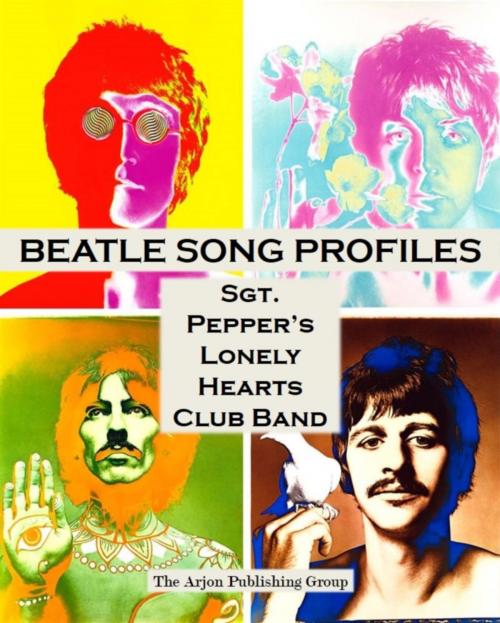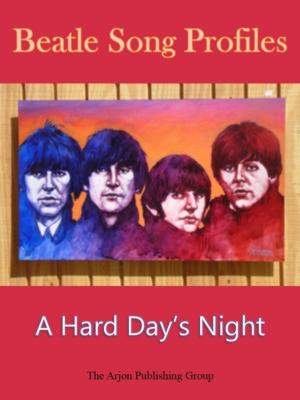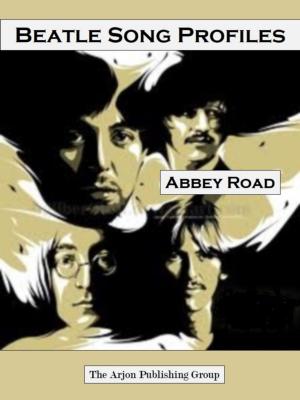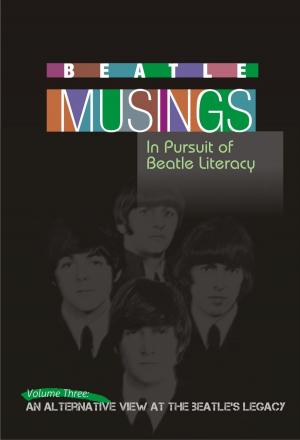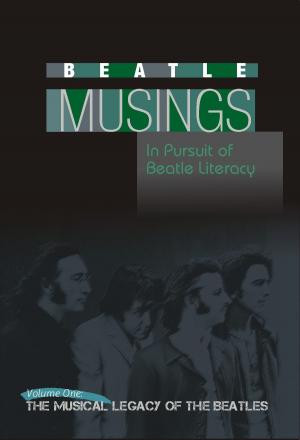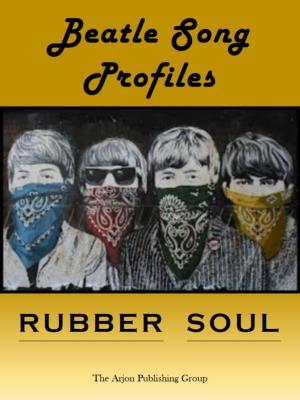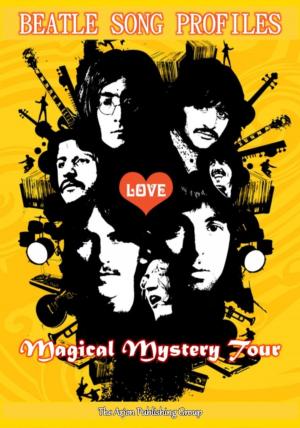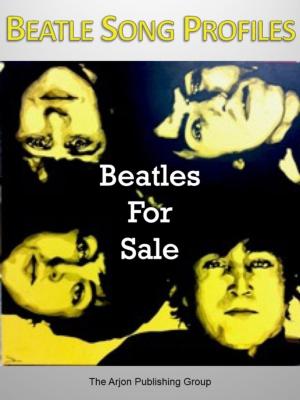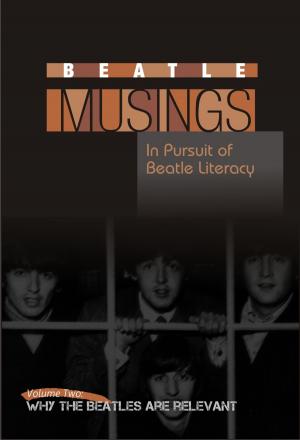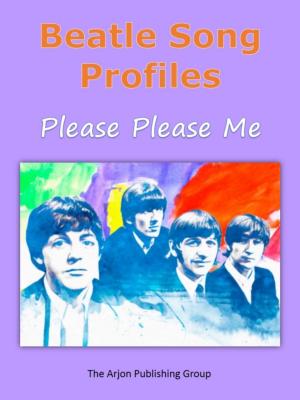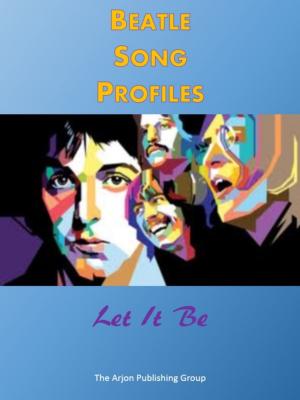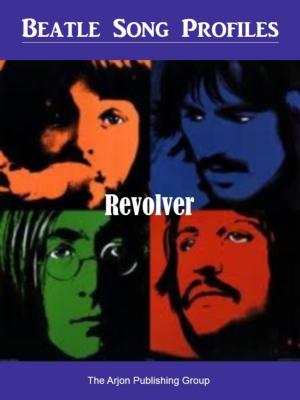Beatle Song Profiles: Sgt. Peppers
Nonfiction, Entertainment, Music, Pop & Rock, Popular, Music Styles, Theory & Criticism, History & Criticism| Author: | Joel Benjamin | ISBN: | 9789657570166 |
| Publisher: | Arjon Publishing | Publication: | August 3, 2012 |
| Imprint: | Language: | English |
| Author: | Joel Benjamin |
| ISBN: | 9789657570166 |
| Publisher: | Arjon Publishing |
| Publication: | August 3, 2012 |
| Imprint: | |
| Language: | English |
Each of the 13 songs from Sgt. Peppers are “profiled” in this volume of Beatle Song Profiles.
Beatle Song Profiles are concise commentaries on every Beatle song. The song profiles describe the song’s origins and inspiration, what The Beatles themselves said about it, what was unique about the music and/or production of the arrangement or vocals, and the deeper meaning of the lyrics.
Beatle Song Profiles is a unique educational tool to enable readers to learn about every song on all 12 albums The Beatles recorded.
Sample song profile from Sgt. Peppers
A Day In the Life
Considered to be one of the most inventive compositions of all Beatle tracks, A Day In The Life represented a new category of song which is much more sophisticated than pop, a lot more accessible and down to earth than pop, and inherently, uniquely innovative. It was the first composition of its type - classical or vernacular - that blended so many disparate elements in such an imaginative way.
In the early 70s, Lennon remarked:
“We wanted to think of a good end and we had to decide what sort of backing and instruments would sound good. Like all our songs, they never became an entity until the very end. They are developed all the time as we go along.”
A year later, he said:
“It was a good price of work between Paul and me. Now and then we really turn each other on with a bit of song and he just said ‘yeah- bang bang’, like that. It just sort of happened beautifully, and we arranged it and rehearsed it, which we don’t often do, the afternoon before.”
In 1980, his take on Pauls’ contribution was:
“The beautiful lick in the song, ‘I’d love to turn you on’ . I had the bulk of the song and the words, but he contributed this little lick floating around in his head that he couldn’t use for anything.”
McCartney comments in his autobiography:
“Part of the song was about me remembering what it was like to run up the road to catch the school bus, having a smoke and then going into class.”
A Day In The Life was the first rock/pop song to use a Mellotron - a keyboard that electronically produces programmed taped sounds. The final chord was produced by all four Beatles and George Martin banging on three pianos simultaneously. The resulting note lasted 42 seconds.
McCartney wanted his voice to sound all muzzy, as if he had just woken up from a deep sleep and hadn’t yet gotten his bearings, because that was what the lyric was trying to convey.
Ringo came up with one of his most inventive drum parts on record in the final verses as there is the distant thunder effect he creates which is a perfect complement to Lennon’s voice. Ringo’s fantastic, innovative tom-tom fills punctuate the lyrics of the song. They were a perfect mixture of simplicity and guts and had introduced a new musicality: “musical drumming.”
The song’s use of dynamics and tricks of rhythm, and of space and stereo effect, and its deft intermingling of scenes from dream, reality and something in between, was so visually evocative it seemed more like a film than just another track on a rock album.
A Day In The Life was a song inside a song and it worked in much the same way that the technique of a play within a play does; the interdependence of reality and illusion is telescoped into one setting.
The technique of the blurring of the dream life and the real world leaves the listener not sure whether Lennon’s section is the “real” world or if it’s merely the dream that Paul slips back into atop the bus: The alarm clock blurs these boundaries; is Paul waking from Lennon’s nightmare, or is Lennon imaging Paul’s generic day in the life?
Each of the 13 songs from Sgt. Peppers are “profiled” in this volume of Beatle Song Profiles.
Beatle Song Profiles are concise commentaries on every Beatle song. The song profiles describe the song’s origins and inspiration, what The Beatles themselves said about it, what was unique about the music and/or production of the arrangement or vocals, and the deeper meaning of the lyrics.
Beatle Song Profiles is a unique educational tool to enable readers to learn about every song on all 12 albums The Beatles recorded.
Sample song profile from Sgt. Peppers
A Day In the Life
Considered to be one of the most inventive compositions of all Beatle tracks, A Day In The Life represented a new category of song which is much more sophisticated than pop, a lot more accessible and down to earth than pop, and inherently, uniquely innovative. It was the first composition of its type - classical or vernacular - that blended so many disparate elements in such an imaginative way.
In the early 70s, Lennon remarked:
“We wanted to think of a good end and we had to decide what sort of backing and instruments would sound good. Like all our songs, they never became an entity until the very end. They are developed all the time as we go along.”
A year later, he said:
“It was a good price of work between Paul and me. Now and then we really turn each other on with a bit of song and he just said ‘yeah- bang bang’, like that. It just sort of happened beautifully, and we arranged it and rehearsed it, which we don’t often do, the afternoon before.”
In 1980, his take on Pauls’ contribution was:
“The beautiful lick in the song, ‘I’d love to turn you on’ . I had the bulk of the song and the words, but he contributed this little lick floating around in his head that he couldn’t use for anything.”
McCartney comments in his autobiography:
“Part of the song was about me remembering what it was like to run up the road to catch the school bus, having a smoke and then going into class.”
A Day In The Life was the first rock/pop song to use a Mellotron - a keyboard that electronically produces programmed taped sounds. The final chord was produced by all four Beatles and George Martin banging on three pianos simultaneously. The resulting note lasted 42 seconds.
McCartney wanted his voice to sound all muzzy, as if he had just woken up from a deep sleep and hadn’t yet gotten his bearings, because that was what the lyric was trying to convey.
Ringo came up with one of his most inventive drum parts on record in the final verses as there is the distant thunder effect he creates which is a perfect complement to Lennon’s voice. Ringo’s fantastic, innovative tom-tom fills punctuate the lyrics of the song. They were a perfect mixture of simplicity and guts and had introduced a new musicality: “musical drumming.”
The song’s use of dynamics and tricks of rhythm, and of space and stereo effect, and its deft intermingling of scenes from dream, reality and something in between, was so visually evocative it seemed more like a film than just another track on a rock album.
A Day In The Life was a song inside a song and it worked in much the same way that the technique of a play within a play does; the interdependence of reality and illusion is telescoped into one setting.
The technique of the blurring of the dream life and the real world leaves the listener not sure whether Lennon’s section is the “real” world or if it’s merely the dream that Paul slips back into atop the bus: The alarm clock blurs these boundaries; is Paul waking from Lennon’s nightmare, or is Lennon imaging Paul’s generic day in the life?
